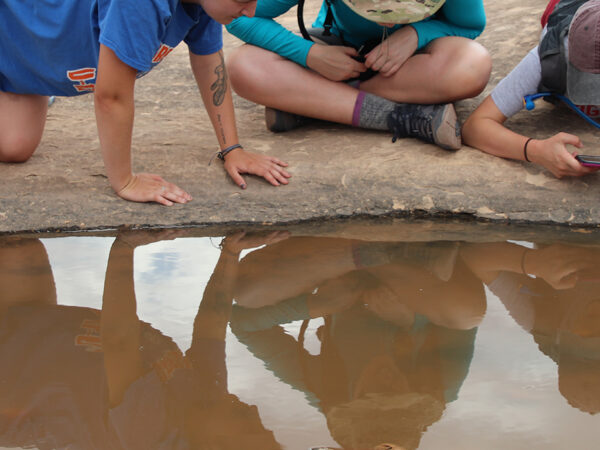Bachelor of Science in Environmental ScienceSchool of Arts and Sciences
Studying our Impact on the World
The environment brings you joy; you often surround yourself in nature and wonder at the world around you. Over the decades, the environment has changed due to the impact humans have had on the earth’s ecosystems and resources. As a student in the Bachelor of Science in Environmental Science program, you will develop an understanding of and life-long enthusiasm for scientific discovery while gaining a broad view of environmental issues and factors. This multidisciplinary approach incorporates biology, geoscience, chemistry, and mathematics.
As an environmental science major, you have two concentrations to choose from: biology and geoscience-chemistry. Both incorporate the foundation of environmental science, the physical sciences and the study of the environment, and explore solutions to complex environmental issues. Classroom experiences are complimented by field-based research to understand the exchange between society and the planet.
Majoring in environmental science with a biology concentration provides you the opportunity to learn about human decisions, actions, and how they affect living organisms and ecosystems.
Geoscience-Chemistry Concentration
This concentration provides students with a focused study of how humans interact with the environment while exploring processes occurring within the Earth, oceans, and atmosphere.
Madison, WI
On-campus
120
August 25, 2025
Careers within Environmental Science
$78,980
Average annual salary for an Environmental Scientist
A bachelor’s degree in environmental science prepares you for a variety of career paths. Those marked with an asterisk (*) require graduate level degree.
- Conservation Scientist
- Environmental Engineer
- Environmental Lawyer*
- Environmental Scientist
- Geoscientist
- Hydrologist
- Postsecondary Environmental Science Teacher*
- Zoologist or Wildlife Biologist
Environmental Science Student Spotlight
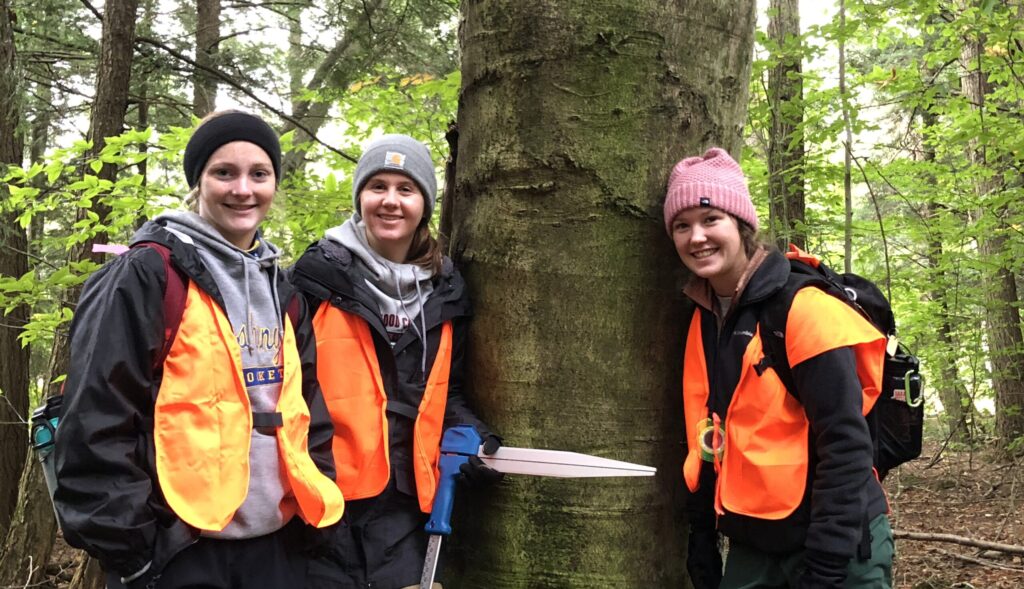 Undergraduate research in forest ecology, Door County WI
Undergraduate research in forest ecology, Door County WI
Left to right: Emily Killian ‘21, Miranda Connell ‘21, Grace Sullivan-Konyn ‘22

Emily Killian,’21
Bachelor of Science in Broad Fields Natural Sciences, Edgewood High School, Biology Teacher
“The environmental program gave me space to explore my passion for the outdoors and allowed me to develop strong research skills along side a fun and supportive community of students and faculty.”

Miranda Connell, ‘21
Bachelor of Science in Biology, Thermo Fisher Scientific, Associate Scientist in the Biopharmaceuticals Department
“I loved spending time in the environmental science program and equally loved all the people I met along the way! To me, the program really demonstrates Edgewood’s core values of being compassionate for the world around us while being able to ask questions and find our place in it.”

Grace Sullivan-Konyn, ’22
Bachelor of Science in Environmental Science, Madison Metropolitan School District & Student in the Master of Science in Secondary Science Education
“The Environmental Science Program taught me a variety of skills through research in Door County and hiking switchbacks in Utah. It was a place where I developed my true passion of being a steward of this land, and how we are all interconnected to the environment in some shape or form.”
Featured Courses
Geoscience 216 – Environmental Geology
Environmental geology focuses on the interaction between humans and geological processes that shape Earth’s environment. An emphasis is placed upon both how integral earth processes are to human survival and the fact that humans are in integral part of a complex and interactive system call the Earth System. The study of environmental geology brings important knowledge and information to the search for solutions to many of the problems facing humanity today. Challenges such as expanding populations, resource distribution and use, energy and water availability, and earth processes (especially flooding, earthquakes, volcanic eruptions, landslides, etc.) that pose serious risks to life and property are addressed. Possible solutions are explored that work within ecological realities and prioritize the ability to meet the needs of the current population without reducing the options available to future generations.
Environmental Studies 250 – Introduction to Environmental Science
Humans are intimately connected to the natural world. We not only depend on the environment for our existence and well-being, we are part of the environment and our actions can affect it profoundly. This course explores the connections between humans and our environment by exploring basic ecological principles and applying them to many of the major environmental issues currently faced by humanity.
No species exists in isolation; life on Earth depends on interconnections between organisms and their environment. This course explores this interdependence by considering ecological principles as they pertain to individual organisms, populations, communities, ecosystems, and the biosphere. Special attention is given to the role of humans in global ecological systems. Many topics are explored through field-based research in local natural communities in the laboratory.
Student Organizations
Wood’s Edge
Wood’s Edge is an organization for students who are interested in the outdoors and caring for the environment. Participate in a variety of recreation and service activities such as:
- hiking
- camping
- canoeing
- invasive species management on campus
- rearing garden seedlings
- tending the campus garden
- selling fresh healthy produce to our community
Woods Edge is a main sponsor of Edgewood’s annual Earth Week celebration, which garners many more events revolving around the care and appreciation of our environment.
Environmental Science Experiences
Environmental Science majors collaborate with our faculty and community partners to complete mentored research projects as an integrated component of their academic program, spanning a three-course sequence. Hands-on applied opportunities are built into our curriculum to ensure graduates obtain practical experience, preparing them for the demands of the job market. As a valued member of the scientific community, you will be empowered to showcase your research achievements through participation in various on-campus celebrations of student scholarship, along with regional and national scientific conferences.
You will also have access to collaborations with a wide array of community partners, including UW Arboretum, Dane County Office of Energy & Climate, Badger Volunteers, City of Madison Parks, WI DNR, Madison 350, The Nature Conservancy, Door County Land Trust, local neighborhood associations, and many more.
Environmental Science Faculty Spotlights

Jacob Griffin
Associate Professor
JacobGriffin@edgewood.edu

Nicole Kime
Professor
NKime@edgewood.edu

Tim Kuhman
Professor
TKuhman@edgewood.edu

David Cordie
Associate Professor, Geoscience
dcordie@edgewood.edu

Diana Huepenbecker
Senior Lecturer
DHuepenbecker@edgewood.edu
Exploring Nature Here and Abroad
Study Abroad
The best way to learn about the environment is to get out into it! As an Environmental Science student, you’ll have the opportunity to join faculty-led study abroad courses in the Galapagos Islands, Costa Rica, and Iceland.
Campus Location
You’ll be uniquely positioned in the city of Madison, surrounded by expansive natural areas. Within an easy walk or bike ride are the shores of beautiful Lake Wingra, pre-settlement oak savanna trees, abundant woodlands, wetlands, and the 1200-acre University of Wisconsin Arboretum, located across the lake. You’ll also work with faculty and staff deeply committed to environmental education and stewardship, making this the ideal place for students passionate about environmental studies.
Related Major Programs
-
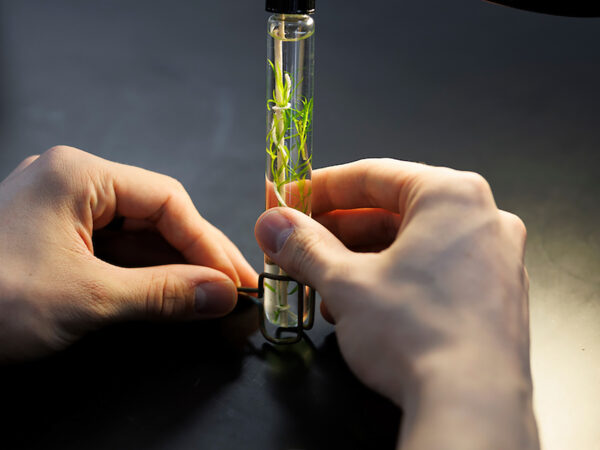
On-campus
Bachelor of Science in Biology -
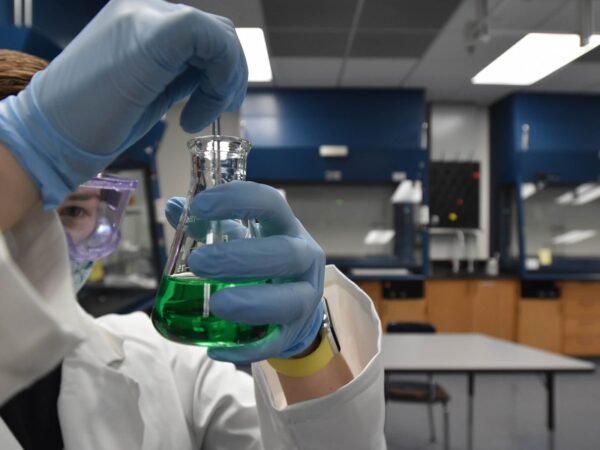
On-campus
Bachelor of Science in Chemistry -

-
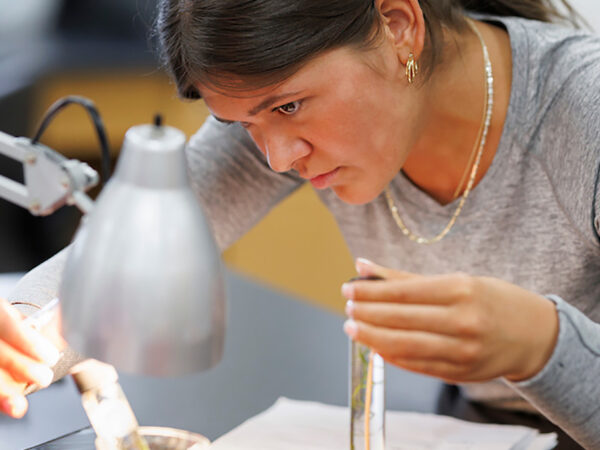
-

On-campus
Bachelor of Science in Physics -
